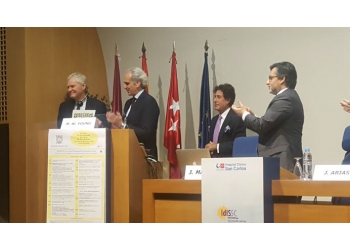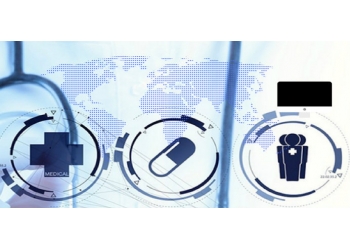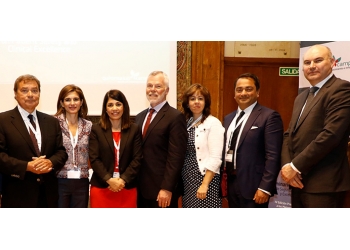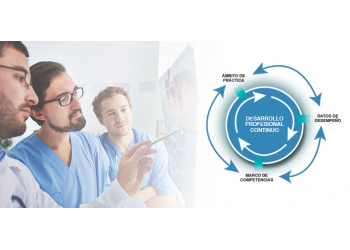
The Argentine heart surgeon Jorge Trainini is a homo universalis. A pioneer in the use of stem cells in his specialty, today he leads the Chair in Medical Education at the Practicum Foundation.

Practicum has attended the “Looking Ahead in Progress Testing Conference 2018,” organized by the Medical School of the University of Exeter (UK) and the European Board of Medical Assessors (EBMA). The opening was led by Prof Dr Cees van der Vleuten, international consultant of Practicum Script and EBMA director.

The first indication of the existence of a biological clock could be traced to the plant Mirabilis, whose leaves open towards the sun by day and close at nightfall. This is the analogy used by Dr. Michael W. Young, 2017 Nobel Prize in Medicine and protagonist of the 37 Fernández-Cruz Memorial Lesson, to explain the circadian rhythm.

Simulation-based learning curves improve the results of traditional didactics. In fact, you can practice as much as you want and learn from errors without consequences. The electronic platforms of clinical cases and virtual patients are the best assets to face this challenge.

The 71st World Health Assembly, held in Geneva last week, dedicated part of its program to eHealth. Delegates agreed to give priority to the development of digital technologies in the field of health as a catalyst for multidirectional communications, feedback loops, and adaptive data-based management.

The Practicum Foundation has attended the V International Seminar on Patient Safety and Clinical Excellence, organized by Quirónsalud at the Jiménez Díaz Foundation in Madrid. The meeting has brought together about 350 professionals. We take the chance to interview Patrick Courneya, executive vice-president at Kaiser Permanente.

Salamanca is the international epicenter of education with the IV Universia International Rectors’ Meeting, and our president, Dr. Eduardo Hornos, is one of the more than 700 academic representatives and personalities of politics and business invited to this symposium, held under the motto "University, Society, and Future."

Next May 25, the new General Data Protection Regulation will come into force. For the first time, Brussels sets common standards on the right of people to know who, how, and why their data are being used or stored. In this framework, the European Commission demands the digital transformation of health systems.

It is time to embrace professional development based on competencies. The transition will require professionals to evaluate their clinical performance, medical centers to provide indicators on a regular basis and train educators, and regulatory authorities to turn to the certification of competences.
Our personalized help center enables you to obtain technical support and help for navigating through the site and using the program.